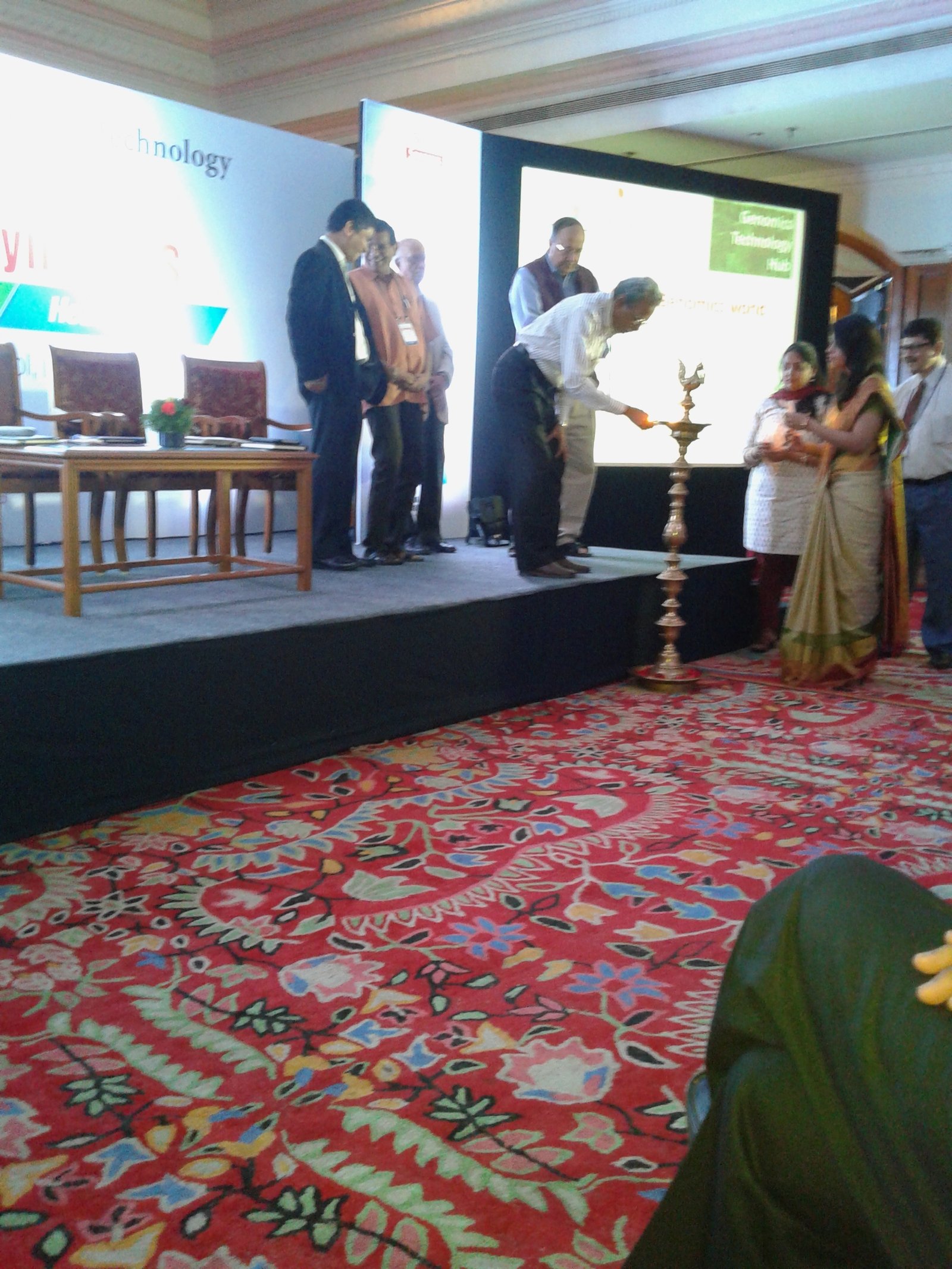India the best place to study drug responses
September 12, 2014 | Friday | News | By BioSpectrum Bureau
India the best place to study drug responses: Prof Samir K Brahmachari
Prof. P R Krishnaswamy, principal scientist, IISc, lighting the lamp at the event
In his presentation, eminent guest Prof. Samir K Brahmachari said that the Indian genome is a melting pot of the world population. "India is the best place to study drug-responses and drug-reactions in clinical trials. Our country has a large and diverse population coupled with good IT application capability. If we do not take advantage of NGS, then India is less likely to be successful in the global arena. Our major weakness is failing to publish our research works and papers," he opined.
Earlier, genome sequencing cost around $3 million. Currently it is down to $1000, which perhaps will reduce even more in the years to come, Prof. Brahmachari revealed.
Dr Raja C Mugasimangalam, founder and CEO, Genotypic Technology told BioSpectrum, "We are in the NGS era and we need to learn to apply it. We want to be the genomics technology hub, where technology companies, colleges, mobile application developers, entrepreneurs, doctors, and everyone can be a part. We need to learn to collaborate since it is not a one-man show."
The NGS data analysis and interpretation market in India is estimated to be $100 million. According to Dr Raja, NGS in India is doing better than anywhere else in the world. "This is the next enabling technology wave and we can't stop it. Its applications vary from pharma to agriculture, and basic science to clinical trials," he explained.
Dr Raja feels that students have to get into more of analyzing and interpreting NGS data. He revealed, "This is the future. Technically, biotechnology has died. The next wave is in genomics and genome-informatics. We are depending too much on the West for equipment and machines in NGS technology, which needs to reduce. However, for data interpretation, we are the kings."
Dr Venkatesh Krishnamurthy, research director, Genotypic Technology said that this conference will be a one-stop platform for people interested in NGS.
"The conference will provide an idea of current happening trends in NGS. People can fine-tune their existing knowledge and pick-up dynamic projects. This event has made it possible for the industry and academia to come together as one cluster for further growth," added Dr Krishnamurthy.
Genotypic Technology has inked a pact with Manipal University, an R&D collaboration in clinical diagnostics. Last year, it also signed an MoU with VIT.
The company is also in the process of singing another MoU with NIMHANS (National Institute of Mental Health and Neurosciences), which is expected to reach fruition very soon.









